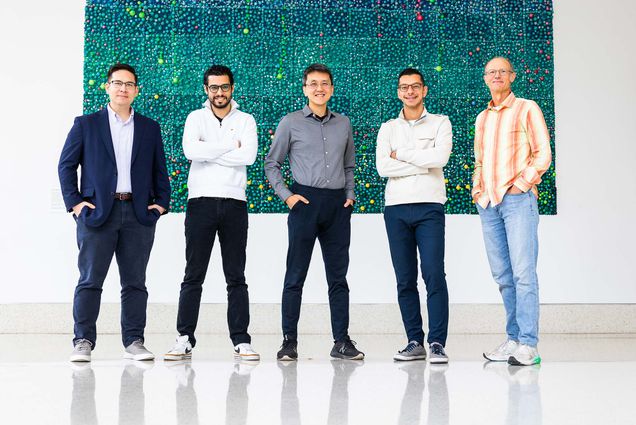Following the events of September 11, 2001, the lack of available and adequate research facilities was determined to be a major impediment to the study of emerging infectious diseases. Important pathogens had received little research attention, and many had not been examined using the tools of modern science.
In 2003, Boston University was awarded a grant from the National Institute of Allergy and Infectious Diseases (NIAID) to build one of two National Biocontainment Laboratories. Supporting NIAID’s newly developed research agenda, the National Emerging Infectious Diseases Laboratories (NEIDL) represents a major step forward in advancing public health and solidifying the New England area’s reputation as the biomedical research hub of the nation.
For more history and background on NEIDL, click here.
Threading the NEIDL
NEIDL and its staff maintain its laboratories to support research in a safe and secure environment. The facility was designed and constructed with the highest level of attention to community and laboratory safety and security.
The National Emerging Infectious Diseases Laboratories (NEIDL) is a state-of-the-art research facility that supports the work of investigators who focus on infectious diseases that are—or have the potential to become—major public health concerns. Our research program focuses on understanding how pathogens cause disease, and is dedicated to the development of diagnostics, vaccines, and treatments to combat these emerging and re-emerging infectious disease threats. The NEIDL houses biosafety level 2 (BSL-2), BSL-3, and BSL-4 laboratories, which are designed to permit investigators to work safely with these emerging pathogens. The NEIDL is owned and operated by Boston University, but is also one component of a national network of secure facilities that study emerging infectious diseases.
Video

Inside Omicron with Mohsan Saeed
Mohsan Saeed joins This Week in Virology to discuss the work of his laboratory showing that spike and nsp6 are determinants of Omicron attenuation, and why the work was widely misinterpreted by the press and the public.
Also in this section
In the News
-

NEIDL Researcher Quoted In Washington Post on H5N1
The recent bird flu outbreak is being regarded as the largest animal disease outbreak on record, raising concerns about its potential to spark a pandemic.
-

NEIDL Researcher Florian Douam, PhD, Receives Smith Family Foundation’s Odyssey Award
Two junior faculty members have been awarded Smith Family Foundation’s...
-

NEIDL Researcher Wins a 2024 Kilachand Fund Award
What if we could find a way to bring mRNA vaccines and antibodies together, so each retains their benefits while reducing their limitations? A new Boston University project aims to do just that.




